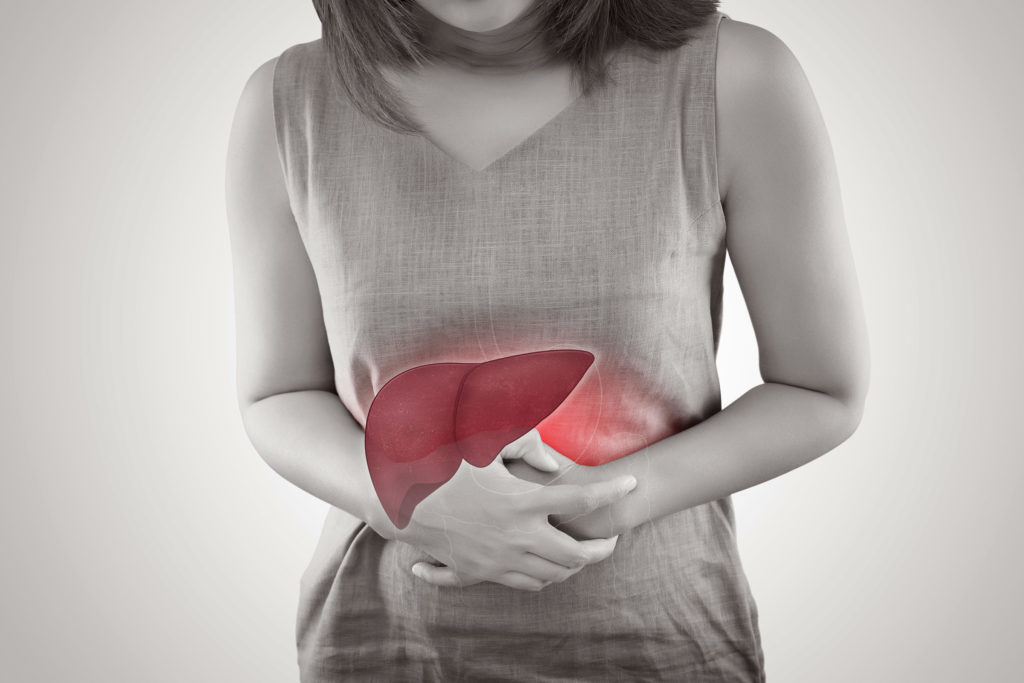Fatty liver: everyday risks, our liver is still suffering
Metabolic syndrome and fatty liver go Hand in Hand
A high alcohol intake can known of liver dimensions of damage sustained and the risk of gaining fat. Meanwhile, however, it has developed non-alcoholic fatty liver, the most common Form of fatty liver disease. This also occurs in people who drink no or little alcohol. Why this is so, explain the experts of the German liver Foundation.
High-Performance Organ Liver
Our liver is an important metabolic organ in our body. Every day approximately 2,000 liters are directed to the blood by high-performance body. This substances such as sugar, fat, protein building blocks (amino acids) and vitamins, which can be stored, reused, recycled, converted, or degraded. Together with the kidneys, it is important for the detoxification of the body responsible.

People Disease Fatty Liver
The non-alcoholic fatty liver (NAFL) has now developed into a widespread disease. According to estimates of the German liver Foundation, approximately every Fourth in the age above 40 years is affected by this liver disease is rising. Many don’t even know that you have a non-alcoholic fatty liver disease, because the disease often proceeds without symptoms. Only nonspecific symptoms, such as lethargy, fatigue, feeling of fullness or pressure in the right upper belly sometimes to a fatty liver.
Fat liver is often a consequence of metabolic syndrome
As the experts of the German liver Foundation reports, the number of cases of disease. A reason for this: The non-alcoholic fatty liver disease often occurs as a result of the so-called metabolic syndrome, a condition from which every third Person is already affected. Doctors speak of a metabolic syndrome, when several adverse health conditions occur at the same time, and each other fuel. These include Obesity, high blood sugar, high blood fat and high blood pressure.
What are the risks associated with fatty liver?
“The non-alcoholic fatty liver disease left untreated can lead to a fatty liver inflammation (non-alcoholic Steatohepatitis, the short NASH)”, report of the liver expert. From this condition, a liver cirrhosis or liver cancer may develop – Diseases that can potentially be fatal. Also people with fatty liver disease die more often of heart disease, warns the German liver Foundation.
Why suffer so many people to a fatty liver?
Today’s life style of many people, favored the development of fatty liver. To diseases In the guideline non-alcoholic fatty liver age, increased BMI, increased calorie intake, and the Presence of insulin resistance or type-2 Diabetes, as well as a lack of exercise as risk factors.
Risk Factor Diet
“The imbalance between calorie intake and consumption generates the same four vessel-damaging risk factors”, stressed the German liver Foundation in a Disease profile. People that feeding your body constantly more calories than you burn to store the excess energy in the Form of fat. Not only visible on the belly, but also in the liver. Particularly sugar-rich and fat food and sugar-sweetened beverages rich in favour of the development of non-alcoholic fatty liver. In addition, the risk of developing Diabetes increases by the excess weight.
Risk Factor Movement
Many Germans suffer from a distinct lack of movement. Much of the Work today is carried out in a Sitting position. The daily movement many people only between bed, office chair and Sofa. In the guideline, regular moderate exercise will go, for example, by walking, Swimming or Cycling is recommended. In several case-control studies, it was found that a minimum of 30 minutes of physical activity, which will be exercised two to three times per week, a protective effect against fatty liver.
Risk Factor Medication
Since the liver is the detoxification of the body responsible, are also degraded many of the substances from the drugs here. Some of them can damage the liver. According to the German liver Foundation, for example, medicines can interact with the actives cortisone, Estrogen, amiodarone, Diltiazem, valproate, Tamoxifen, as well as high doses of Acetaminophen put a strain on the liver. In case of doubt one should have his liver values by a doctor to check and, if necessary, about possible Alternative advice. (vb)
